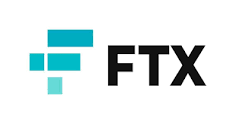Can blockchain technology be used to support sustainable business practices? The answer is an unequivocal yes.
GoDaddy has the online tools to help small businesses succeed, including domains, hosting, easy to use website builder and online store tools.
Long associated with cryptocurrency, blockchain technology has many uses across industries. These include banking and financial services, healthcare, insurance, retail, and a host of other sectors.
A blockchain makes it possible to securely trade almost anything of value on a network.
Blockchain technology is a system of recording information in a manner that makes hacking to gain access to it practically impossible.
The reason for that is the fact that the records for any transactions need to be added to a very large number of ledgers for them to be validated and recorded.
Related: Learn about sustainable lifestyle brand Aislee [podcast]
How blockchain can support sustainable business practices
The central tenet in ensuring sustainable business practices is the concept of a circular economy. This entails:
- Minimizing waste
- Reusing products
- Recycling materials as far as possible

Blockchain can be of tremendous help in this by ensuring transparency and traceability. This helps businesses sanitize their supply chains by virtually eliminating fake and counterfeit products and thereby minimizing the negative impact that would have had on limited natural resources.
Blockchain technology has a salutary impact on all stages of the supply chain including:
- Manufacturing
- Logistics
- Disposal
It helps companies optimize processes and enhance productivity. This has a very positive impact on encouraging sustainable business development in terms of waste reduction and the conservation of scarce resources.
Related: Why your manufacturing business needs Production Management
Principal ways in which blockchain technology aids sustainable business practices
In researching an answer to the question “How can blockchain technology be used to support sustainable business practice?" we found five key qualities of blockchain technology that make this possible.
1. Decentralized control
As blockchain technology is all about decentralized control as well as decision-making, no single person will be able to exercise undue control over the system.
This ensures seamless and efficient business transactions, thereby significantly reducing waste and inefficiency, which in turn leads to a sustainable business ecosystem.
2. Enhances transparency and thereby promotes sustainable growth
Keeping an account of greenhouse gas emissions by business organizations can be done very effectively with the help of blockchain technology that tracks and generates reports about emission reductions. This can help prevent double counting that distort the figures reported.
Stricter adherence to environmental best practices can thus be achieved with the help of blockchain technology.
3. Blockchain technology helps promote green finance
Blockchain technology can help businesses achieve their sustainability goals by enabling crowdfunding and peer to peer financial transactions to be leveraged in aid of climate action initiatives.
That will help win over the trust of a much larger number of investors who could be provided with real time information about how their funding is being used.
4. Helps with recycling programs
Blockchain technology can be used to encourage recycling. This can be done by putting in place a recycling program by organizations, using the blockchain to provide financial incentives to people in the form of cryptographic tokens.

These could be given in exchange for depositing recyclable materials like bottles and containers. Not only will this system help track things like cost, volume, and earnings, but also allow one to get a handle on the environmental impact caused by an individual or a business.
A case in point is an organization called the Plastic Bank that is using both blockchain and IBM cloud technologies to come up with a technology that helps in monetizing ocean plastic.
Plastic Bank turns plastic into currency by opening plastic collection points in third world countries.
It works by letting people deposit used plastic in exchange for cash, the ability to recharge a phone and so on.
Another blockchain technology-powered application called RecycleToCoin (RTC) offers incentives for recycling plastic, aluminum, and steel cans.
It has done that by joining hands with global offset and reward partners and by utilizing the collection points accumulated via the app. The more one recycles, the more incentive they get.
5. Eliminating food wastage
Much of global hunger would be eradicated if food wastage would be eliminated. Blockchain technology can now be used to achieve just that.
A blockchain-based app called Food Trax, for instance, tracks food right from its origin to the shelves to ensure that there is no food wastage along the way, on account of poor storage and inefficient handling.
It does so by interlinking data temperature loggers and equipment measuring and monitoring for an innovative solution that addresses every concern across the supply chain in a most transparent manner.
Blockchain and sustainability make perfect partners
The world realizes the imminent danger the deteriorating global environment poses to our very survival. People everywhere want to ensure that sustainable business projects become the norm globally.
This is where blockchain-enabled processes can help by making transactions highly efficient and therefore more sustainable.

As environmentally sustainable development projects find favor with investors, there is every reason for businesses to turn to blockchain technology to help them suitably improve their processes.
While there is no doubt that blockchain technology can improve sustainable business practices in several ways, it will require an across-the-board improvement in digital infrastructure for it to have a really substantial impact.
Blockchain-powered sustainability solutions involve applying a value chain dependent outlook to business that can help inculcate sustainable practices across the supply chain as well as manufacturing process.
Once implemented, these sustainability practices can be demonstrated to not just the end users, but also financial regulators and policymakers.
Implementing sustainable business processes is a work in progress around the world and requires all hands-on deck for it to succeed globally.
Blockchain applications/use cases
Blockchain technology is expected to change the paradigm of how B2B (business to business), G2C (government to citizen), B2G (business to government), and G2G (government to government) services are delivered in the times ahead. This will be reflected across sectors like:
- Cyber security
- Governance
- Healthcare
- Media
- Travel
- Education
- Energy
- Legal
- Logistics
- Travel
- Hospitality
- Automotive
Way back in 2016, ICICI Bank became the first bank in India and among the very few in the world to start using blockchain technology to authenticate remittance transaction messages and original international trade documents pertaining to purchase orders, invoices, shipping and insurance in real time.
IBM Blockchain empowers the logistics sector by providing the status as well as condition of every product in a business’s supply chain — right from the raw material to the distribution stage. It introduces transparency by providing a shared record of ownership as well as the location of the parts and products in real time.

Accenture provides blockchain solutions for its insurance clients that help enhance efficiency in their processes. These blockchain-powered solutions help improve trust in their system — something that is highly valued in the insurance industry.
Let us look at a few use cases for the adoption of blockchain technology in India:
Telecom
Telecom Regulatory Authority of India (TRAI) has asked the Indian telecom companies to start using blockchain technology to resolve the issue of subscribers receiving an inordinately large number of spam calls. By doing so, the authorities hope to identify unregistered telemarketers, in turn curbing the menace in a substantial manner.
Securities and Exchange Board of India (SEBI)
Securities and Exchange Board of India has told all its depositories to take the help of blockchain technology in maintaining its records. This is expected to usher in transparency in the record-keeping process and oversight in the creation of securities as well as the covenants of the non-convertible securities.
The Tea Board of India
The Tea Board of India plans to deploy blockchain technology to help enhance traceability across the entire supply chain.
The tea industry suffers massively on account of adulteration carried out while the products are in transit.
Using blockchain technology to record every transaction along the supply chain will help increase accountability and tackle the problems before they arise.
There are other blockchain use cases from other industries around the world. Let’s check out a few:
- Integrating the IoT or Internet of Things with blockchain can prevent data breaches, which sometimes occur when using the former technology. Considering the fact that by 2030 a whopping 50 billion devices will be connected with IoT, this integration will be of immense significance indeed. A good example of this is the case of HYPR, which combines smartphone technology with the very secure FIDO token. That is what powers its passwordless authentication feature.
- Burst IQ uses big data-supported smart contracts that make the transfer of sensitive medical data between patients and doctors possible.
- Propy, the real estate platform that makes use of a blockchain-powered title registry system, is another fine example of how blockchain can be used for myriad business purposes. In this case it helps automate all the broker, realtor, and client related transactions. It also enables instant title issuance, as well as the buying and selling of property using cryptocurrency.
There are in fact many other use cases relating to the use of blockchain in business — and the list is only growing longer by the day. It is, for instance, used to help in audits as blockchain provides an immutable record of transactions. This provides an easy-to-retrace paper trail for internal as well as government audits.
Blockchain technology also helps in quality assurance. As businesses can link every part of their supply chain to the blockchain. Any need for a product recall or investigation can be identified in no time.

Blockchain technology also enables faster trading on securities or commodities stock exchanges. The distributed nature of the blockchain technology allows the process to be finalized in only a few minutes, as opposed to the several days that it used to take earlier. This is on account of the fact that blockchain-based settlement does not need to be processed by a number of validators over a few days — it happens automatically in a matter of minutes.
Blockchain technology can also help strengthen the voting process, making democracies stronger via foolproof validation of election results.
The accuracy of the vote can be guaranteed by the fact that records in the blockchain cannot be altered or tampered with in any way.
The key tenets of blockchain technology are immutability and transparency which are also at the heart of a successful election.
That being stated, the use of blockchain technology for sustainable business is a work in progress that is bound to be impacted by events in the blockchain space.
Impact of FTX cryptocurrency crash on the use of blockchain for sustainability

While it is all very well to be optimistic about the beneficial impact of blockchain technology in helping support sustainable business practices, the recent FTX cryptocurrency crash does raise some red flags about its very viability.
Although the impact of the crash has been significant on the cryptocurrency industry, the use of blockchain technology in other industries continues to grow.
With some experts predicting that blockchain expenditure will be reaching as much as $67 billion by 2026, it does not seem that the impact of the FTX crash will be lasting or that severe.
Then there are logistics startups in South Korea that are looking at deploying blockchain technology to optimize the last-minute delivery process. They do that by creating centralized delivery platforms deploying AI and smart contract-based applications.
Singapore for its part has ambitions of becoming a hub for blockchain in finance, extending beyond speculative crypto trading.
To understand how blockchain technology encompasses much more than just making cryptocurrency possible, let us delve a little more into what it is that it actually does.
What are smart contracts and how are these connected with blockchain?
When you refer to smart contracts, you really mean programs stored on the blockchain that become operational upon certain conditions being met. These help automate the implementation of an agreement, enabling all the participants to be immediately aware of the outcome without the involvement of any intermediary and without any loss of time whatsoever.
These also help automate a workflow leading to the next stage, once certain conditions are met.
A smart contract is a contract that is self-executing, where the terms pertaining to the agreement between buyer and seller are written into the lines of code.
The advantage that accrues from smart contracts being put on the blockchain is that such transactions become not only traceable and transparent, but irreversible as well.
Another way of understanding a smart contract is to view it as a computer program stored on a blockchain that is responsible for automatically managing the transfer of digital assets between entities upon the fulfilling of certain conditions. A smart contract functions in the same manner as a traditional contract, even while it also automatically implements the contract.
You could say that a smart contract is enforceable with the help of code in pretty much the same manner as traditional contract is enforceable by law. Bitcoin became an early adopter of smart contracts that allowed the transfer of value from one person to another.
In the business arena, smart contracts make it possible for organizations to cope with large volumes of transactions smoothly and seamlessly. This is especially true of transactions that happen across supply chains. Smart contracts provide the advantage of the automatic handling of transactions in the case of a large number of participants. Moreover, smart contracts can help integrate services across varied businesses without in any way divulging sensitive information.
Bitcoin
Bitcoin was created by a person or group of people going by the name Satoshi Nakamoto.

The goal was to create a decentralized system of cash that was completely free of oversight by a server or central authority.
The progenitor or progenitors of this course passed on the source code and domains to people in the Bitcoin community in 2011 and haven’t been heard from since then.
Understanding Bitcoin
Bitcoin is a digital currency and requires neither any physical currency to be printed nor any coins to be minted. It is truly decentralized in the sense that there is no involvement of a government, bank, institution or authority in a supervisory capacity and nobody controls or manages it.
The owners of Bitcoin are anonymous and there are no names, numbers or IDs involved in its trade, with buyers and sellers being connected via encryption keys. Instead of being issued, Bitcoin happens to be mined by power computers linked by the internet.
Mining Bitcoin

A person or group of people can mine Bitcoin with the help of advanced math and record keeping. Every time someone sends a Bitcoin to another person, the transaction gets recorded on the network, as do all the other transactions across a specific period of time in what is known as a block.
The so-called miners — which are really computers running special software — list such transactions in a very large digital ledger. All of these blocks together constitute the blockchain, which is an everlasting and openly accessible record of all the transactions ever made.
Miners are able to convert these blocks into code sequences known as hash with the help of specialized software and very powerful and energy-intensive hardware.
Producing a hash is no mean feat and requires a tremendous amount of computational power and a very large number of miners who compete in their thousands simultaneously to get that accomplished.
The first one who is able to generate the code sequence gets paid for the effort (an amount equal to 12.5 Bitcoins).
It is important to understand that the number of Bitcoins being thus awarded will go down as we go along. A newly generated hash is positioned at the very end of a blockchain, subsequent to which it is publicly updated.
Value of a Bitcoin
The value of a Bitcoin depends on how much people would like to pay for it. The fact that the number of Bitcoins that can be mined is limited at 21 million with 19 million already accounted for makes it scarce like gold.
But unlike gold or stock prices that are tied to a company’s performance, Bitcoin has no intrinsic value. Since there is no central body or authority controlling the supply of Bitcoin, its value can fluctuate a lot — leaving it open to speculations.
So exercising caution and discretion when investing in Bitcoins is highly recommended.
Bitcoins have, of course, made fortunes for many, especially amongst early Bitcoin miners and other technology pioneers.
Bitcoin risks
There are legal and regulatory aspects to Bitcoin investing that someone considering investing in it should be well versed with.
Bitcoin investment by itself is inherently risky, not the least because its value fluctuates, often violently.
Even though Bitcoins are known to provide the advantage of anonymity, it is now possible to use forensic tools to monitor transactions and even identify virtual footprints across the blockchain. However, the fact that one cannot be sure who one is buying a Bitcoin from or selling to adds to the risks of dealing in it. Remember, once a transaction is recorded on the blockchain, it cannot be undone.
Conclusion
Leveraging blockchain technology is only one of the many initiatives that need to be taken to get the job done. That being stated, it is an incredibly significant one that will have an extremely far-reaching impact on ushering in an era of sustainable economic development.
What’s more, by using this technology, one will obtain a very precise idea of the exact rate of progress being made, thanks to its ability to track with pinpoint accuracy.
Going forward we will find that blockchain technology will be one of the most widely deployed tools used by business organizations to ensure the best sustainable development practices.






